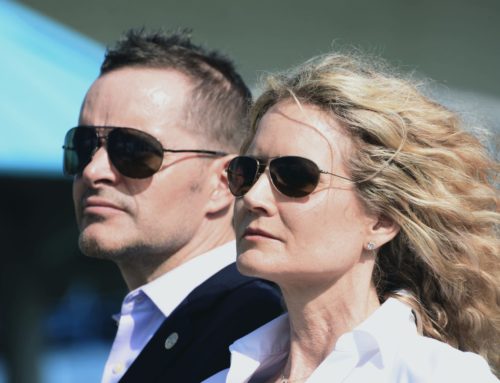The death of legendary journalist and political commentator Cokie Roberts from breast cancer poignantly reminds us that cancer can strike all of us.
Her first bout was in 2002. Since then she worked hard not only to pursue her career but also to educate the public about living with cancer. I was touched to learn that she felt awkward about appearing on television wearing a wig. My late wife, who also died of breast cancer, found wearing a wig very uncomfortable — scratchy and hot. At night Eloise frequently just wore a shower cap.
For all of us who are cancer survivors (17 million Americans) we live every day fearing a recurrence. Instead of being paralyzed by fear, we need to seek actively help from both the medical community and survivors who have experienced our cancer type. Such efforts will restore our sense of dignity and purpose.
Few of us are very prepared to manage our health going forward after receiving postoperative care. Currently, there are gaps in our medical system to address our needs. Our oncologists are focused on treating the cancer and our primary-care doctors have neither the time nor expertise to deal with the complexities of survivor needs.
In brief, for us to choose the best course of action is tortuous.
Front and center is making the right choices to prevent cancer’s recurrence. Studies have shown that one-time survivorship-care plans are ineffective navigation guides. Instead, we benefit primarily from long-term follow-up programs that provide ongoing assessment.
Our problems are exacerbated in some cases by the treatment itself such as (1) damage to the heart and other organs; (2) worsening high blood pressure and diabetes; (3) numbness and pain to the feet and hands; (4) abnormally low white cells; (5) diarrhea, etc.
Sadly, getting cancer emotes a series of emotions like fear, sadness, denial, and depression. Cancer survivors frequently get short changed — they lose their jobs and access to their former employers’ health insurance programs. In addition, they face economic challenges brought on by high medical bills.
Because there are hundreds of cancers, patients require a variety of treatments. Thus, survivors need to be monitored by specialists who can assess their individual risk of recurrence and know the aftereffects of specific chemotherapy and radiation regimens.
Fortunately, Sarasota hosts a number of organizations that provide resource services to cancer survivors. For more than a decade, the Team Tony Cancer Foundation has provided personalized matches that enable 1-to-1 supports among cancer fighters, survivors, and caregivers. Through their unique matching process compiled from a database of cancer survivors, Team Tony pairs individuals seeking support with an experienced Team Mate.
In recognition of the millions of cancer survivors, hospitals around the country are matching trained survivors with those going through a similar cancer. Sarasota Memorial Hospital has announced plans to build a collaborative cancer center to provide on-going help for cancer patients.
The death of Cokie Roberts and Senators Ted Kennedy and John McCain remind us of the fragility of life. As a direct consequence of my colon cancer, I created a cancer fund-raiser (CTAC.life). Over the past two years our CTAC community has raised close to $2 million, and provided funds to over 35 institutions. Our grants have funded research; allowed institutions to purchase needed equipment, and supported cancer support organizations.
At 75, I am very well aware that I need to think carefully about my legacy. In my case, I hope that my efforts saved lives.
When I was a little boy, my father read to me the poem, “Abou Ben Adhem.” Near the end of the poem, Abou Ben Adhem asked the angel “I pray thee, then, Write me as one that loves his fellow men. When the angel returned, it showed whom God had blest. And lo! Ben Adhem’s name led all the rest.”
Originally published in the Sarasota Herald-Tribune

